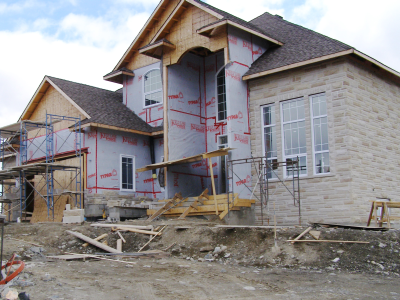The Ontario Home Builders’ Association (OHBA) is lobbying the federal government to reinstate a home renovation tax credit, which it says will protect consumers, while enhancing industry professionalism.
Throughout 2009, the Home Renovation Tax Credit allowed homeowners to claim up to $10,000 in home renovations on their income tax and receive $1,350 back in tax credits.
The program was scrapped because the government “ran out of money,” said OHBA president Doug Tarry. But his association believes the program was a good one; it just needed a bit of tweaking to make it more effective.
“Rather than retooling it, they shut it down, and the concern there is that now we’re back to the underground economy,” Tarry said. “So we’re lobbying very hard to get that reinstated.”
The underground economy refers to under-the-table transactions by non-licensed builders whose projects don’t always meet the same stringent requirements of a licensed builder.
To be eligible for the tax credit, the home reno program required consumers to save and submit their project receipts, a practice advocated by the OHBA.
But there was a component missing, which Marc Levasseur, president of the Sudbury and District Home Builders Association, believes could have made the program that much stronger.
“Seventy-five to 90 per cent of projects needed a permit, but people weren’t getting them because (the government) was only asking for receipts,” Levasseur said. “They should also ask for a building permit.”
Tarion Warranty Corp., a private corporation that licenses Ontario’s new home builders, is also behind the credit. Tarion’s chief operating officer, Joe Vaccaro, said having this documentation leaves a paper trail, ensuring that consumers get the work they’ve paid for, that WSIB practices are followed on the job site, and that contractors and others on site are operating within the right business framework.
“We think that’s good for professionalism and we think that’s good for the consumer, because now the consumer can have some confidence of what they’re looking for in terms of services,” he said.
Part of Tarion’s role is to screen builders by putting them through a vigorous vetting process; builders must demonstrate their competency in a written test and a series of interviews, and prove they have the financial capacity to complete projects.




